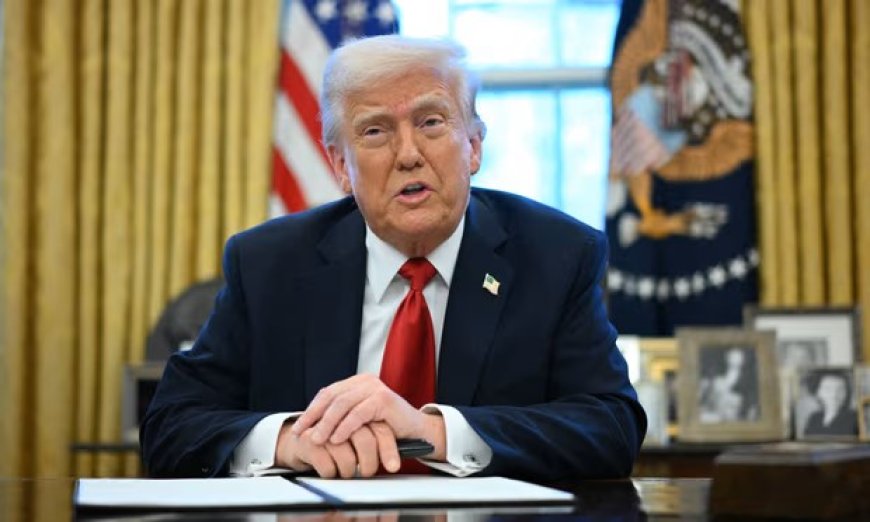Trump signs executive orders to revive coal industry

In an effort to support the struggling coal industry, President Donald Trump signed a series of executive orders on Tuesday aimed at reviving coal production in the United States, AP reported.
The measures are designed to address the industry’s ongoing decline while meeting the country’s rising energy demands.
The executive orders use Trump’s emergency powers to extend the operation of certain older coal-fired power plants, some of which were slated for retirement.
The move aims to ensure a steady supply of electricity as demand grows, particularly with the rise of data centers, artificial intelligence, and electric vehicle production.
Trump also directed federal agencies to identify coal reserves on federal lands, lift restrictions on coal mining, and prioritize coal leasing.
Additionally, he signed a proclamation granting a two-year exemption to coal-fired plants from federal requirements to reduce emissions of harmful chemicals like mercury, arsenic, and benzene.
During the signing ceremony, Trump reaffirmed his commitment to coal, describing it as a “beautiful, clean” energy source that is reliable and cost-effective.
“I call it beautiful, clean coal. I told my people, never use the word coal unless you put beautiful, clean before it,” Trump said at a White House signing ceremony where he was flanked by coal miners in hard hats. Several wore patches on their work jackets that said “coal.”
“Pound for pound, coal is the single most reliable, durable, secure and powerful form of energy,” Trump said. “It’s cheap, incredibly efficient, high density, and it’s almost indestructible.”
The orders also aim to reverse Obama-era policies that had paused new coal leases on federal lands.
Trump has called for more coal technology development and export promotion, seeking to boost the industry’s global competitiveness.
“We’re ending Joe Biden’s war on beautiful, clean coal once and for all,’’ he said Tuesday. “All those plants that have been closed are going to be opened, if they’re modern enough, (or) they’ll be ripped down and brand new ones will be built. And we’re going to put the miners back to work.”
These actions were met with criticism from environmental groups and Democratic officials, who argue that the federal government is overstepping state rights by undermining state-level efforts to address climate change.
Governors Kathy Hochul of New York and Michelle Lujan Grisham of New Mexico, co-chairs of the US Climate Alliance, condemned the move, calling it an illegal attempt to strip states of their authority to regulate energy production.
The federal government cannot unilaterally strip states’ independent constitutional authority. We are a nation of states — and laws — and we will not be deterred,” the two Democrats said.
“We will keep advancing solutions to the climate crisis that safeguard Americans’ fundamental right to clean air and water (and) grow the clean energy economy.”
Trump’s push for coal has been a consistent theme throughout his presidency.
He has long claimed that coal can help meet the country’s growing energy demands, particularly as industries like artificial intelligence and manufacturing expand.
Despite these efforts, energy experts suggest that the coal industry’s decline is likely to continue in the long run, as renewable energy sources like wind and solar become more affordable and natural gas remains a cheaper alternative.
As coal’s share of US electricity production has dropped from over 50 percent in 2010 to about 16 percent in 2023, the industry faces significant challenges.
Trump’s actions are seen as a temporary boost to coal, but many experts believe natural gas and renewables will continue to dominate the energy landscape.
Industry leaders, however, have praised the president’s initiative. Rich Nolan, president of the National Mining Association, emphasized the need to prioritize energy reliability and the economic opportunities that come with coal.
Meanwhile, environmental advocates, such as Kit Kennedy from the Natural Resources Defense Council, argue that coal is outdated and environmentally damaging.
Kennedy called Trump’s actions a misguided attempt to revive a “dirty” energy source at the expense of cleaner alternatives.

 admin
admin 


